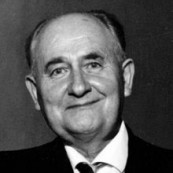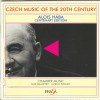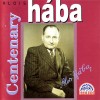Biography
Alois Hába (21 June 1893 – 18 November 1973) was a Czech composer, musical theorist and teacher. He is primarily known for his microtonal compositions, especially using the quarter tone scale, though he used others such as sixth-tones and twelfth-tones.
Hába was born at Vizovice, Moravia, into a musical family; his brother Karel Hába was also a composer, and their father was a folk musician. He began to compose during the studies in Kroměříž (1908–1912). He was a student of composer Vítězslav Novák in 1914–1915 at the Prague Conservatory, graduated with Sonata for violin and piano. Hába studied also at the Imperial Academy of Music and the Performing Arts in Vienna (1918–1920) (among his teachers was Richard Stöhr), and in Berlin 1920–1922). In 1920, as a student of Franz Schreker, he composed his first quarter-tone work - String Quartet No. 2. He was supported by Josef Suk and with his help was able to found a microtonal department of teaching and research at the Prague Conservatory in 1924. In 1923–1948 he worked first as an instructor, later (since 1936) as professor at the Prague Conservatory. During World War II, Hába was endangered by Nazis, because he tried to help his Jewish pupils. After the war he lived in peace in the Socialist Republic of Czechoslovakia. He died in Prague in 1973.
He also commissioned quarter and sixth tone instruments such as trumpets, clarinets and pianos.
His best known work is the opera Mother, which received its premiere at the Gärtnerplatztheater in Munich, Germany in May 1931; curiously, the cast included the Swiss tenor Max Meili, an early music specialist and primarily a recitalist rather than an opera singer.










![Matka [2 CD]](http://static.classicalm.com/repository/composition-cover/small/11479-img1315082752161493.jpg)